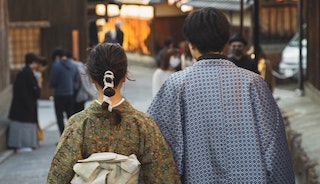TOKYO, Mar 29 (News On Japan) - As the new school year approaches, the methods of conducting "school health checks" vary by municipality, raising questions about their appropriateness.
One woman, who had undergone school health checks shirtless for 12 years from elementary through high school, shared her experience. She said she never received a clear explanation why undressing was necessary and endured the discomfort, believing it was all in the interest of checking for illnesses. Her school in Nagaokakyo City, Kyoto, still mandates "upper body undressing" as a general rule.
According to Masashi Egawa, Vice President of an association aiming for safer health examinations for children, many children are extremely reluctant to expose their naked bodies to others, even to doctors. They advocate for health checks that ensure accurate diagnosis while fully respecting privacy.
In school internal medicine examinations, besides listening to chest sounds with a stethoscope, doctors also check for conditions like scoliosis and examine the skin. However, accuracy may be compromised if the examination is done over clothing, leading to different practices among municipalities regarding undressing.
In January, the Ministry of Education, Culture, Sports, Science and Technology (MEXT) issued a notice to all municipalities, advising that examinations should be conducted in clothing to the extent that it does not hinder the process, prioritizing students' privacy and emotions.
Despite this, Nagaokakyo City insists that undressing is essential for accurate diagnosis. They do not consider allowing examinations in clothing as an option, emphasizing the need to prevent any oversight in disease detection to safeguard children's health and lives.
Some parents express concerns over privacy, especially in an era dominated by social media, fearing the potential for abuse or criminal use of images taken during health checks. Conversely, in Kyoto City, following MEXT's notice, a shift towards "clothing-on" examinations has been initiated, with measures to ensure examinations do not require exposing the chest.
Some medical professionals assert that examinations can be conducted effectively without making children uncomfortable, as lung and heart sounds can be heard and skin observed even with clothing.
The discrepancy in practices across municipalities highlights the need to balance accurate health examinations with respecting children's privacy and dignity.















